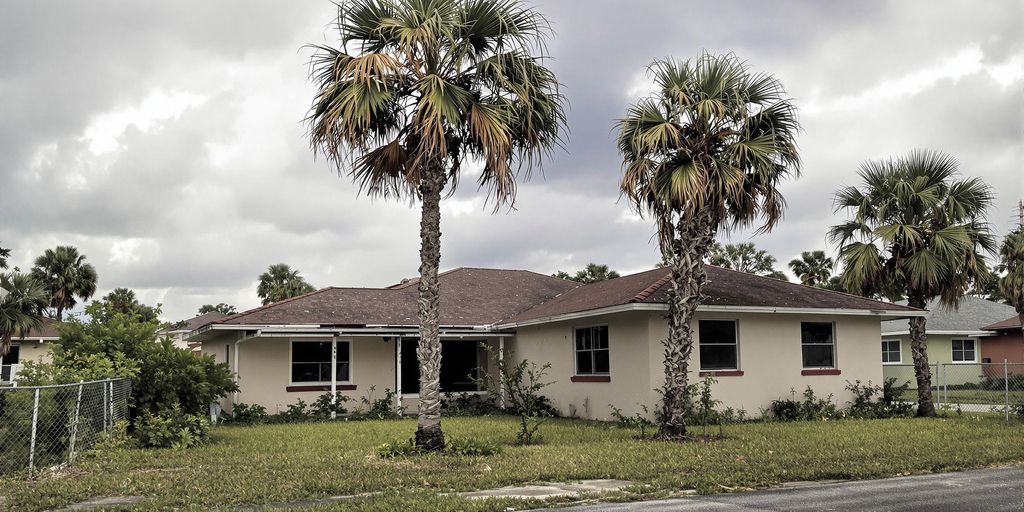Florida’s housing market is experiencing a significant downturn, particularly in Cape Coral and South Florida. This shift marks a departure from the rapid growth seen during the pandemic, driven by factors such as affordability issues, rising insurance and mortgage rates, and increased inventory. Buyers are gaining leverage, while sellers face a more challenging environment.
Florida’s Housing Market Cools Down
Florida’s real estate market, once a hotbed of activity, is now facing a notable slowdown. The state reported negative home price growth of -0.8% in April 2025, indicating a widespread cooling trend. This contrasts sharply with the rapid appreciation experienced in previous years, which pushed prices beyond the reach of many potential buyers.
Cape Coral: Epicenter of the Downturn
Cape Coral stands out as the most affected market, experiencing a substantial -6.5% year-over-year decline in home prices. This drop has brought prices back to spring 2022 levels. Several factors contribute to Cape Coral’s pronounced downturn:
- Rapid Appreciation: The market’s previous rapid growth made it more susceptible to a significant correction.
- Affordability Concerns: Soaring home values outpaced income growth, pricing out many buyers.
- High Vacancy Rates: Cape Coral leads the nation with a 25.72% vacancy rate, largely due to a surge in new construction, creating an oversupply.
South Florida’s Shifting Landscape
South Florida, including Miami-Dade and West Palm Beach, is also grappling with a cooling market. Condo sales in Miami-Dade County were down 21% in April. The region is seeing increased inventory, giving buyers more options and negotiating power. Redfin’s report identified Miami, West Palm Beach, and Fort Lauderdale among the top buyer’s markets nationally, indicating a significant shift from a seller’s market.
Key Takeaways for Buyers and Sellers
- For Sellers: Realistic pricing and preparedness for negotiations are crucial. Cosmetic repairs and competitive pricing are essential to attract buyers in a market with increased inventory.
- For Buyers: The current market offers more negotiating power and a wider selection of properties. However, due diligence and understanding long-term financial goals remain important.
Broader Market Trends and Outlook
The slowdown is attributed to a confluence of factors, including higher mortgage rates (around 7-8%), escalating home insurance costs, and rising homeowners association fees, particularly for condos. While the market is cooling, experts generally do not foresee a crash akin to 2008, but rather a correction after an overheated period. The increased supply, especially from pandemic-era construction booms in Florida, is now favoring buyers. Other Florida markets at high risk of price decline include Lakeland, North Port, St. Petersburg, and West Palm Beach.
Sources
- Is Cape Coral the Next Florida Housing Market to Crash?, Norada Real Estate Investments.
- A look into Florida real estate market, home sales slowdown, WUSF.
- 3 Florida Housing Markets Having the Highest Vacancy Rates, Norada Real Estate Investments.
- Florida markets Miami, Tampa, Jacksonville lead top buyer’s markets: Report, wtsp.com.
- Housing Scorecard: Inventory rises across South Florida, South Florida Agent Magazine.


